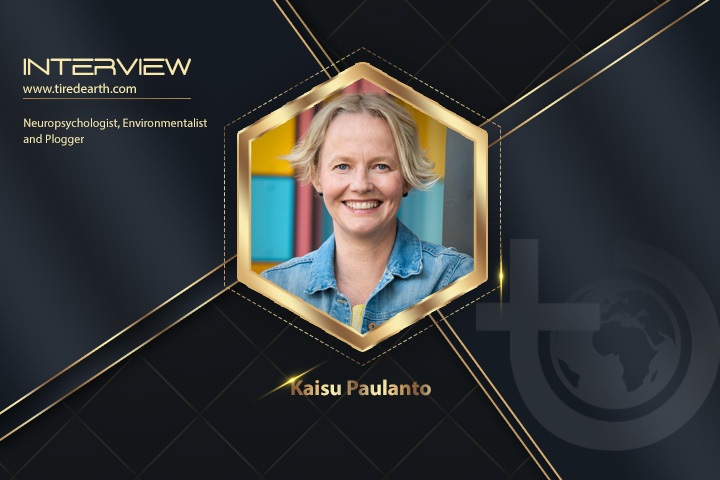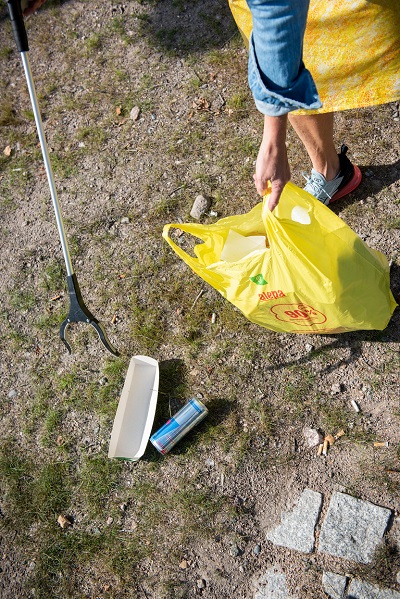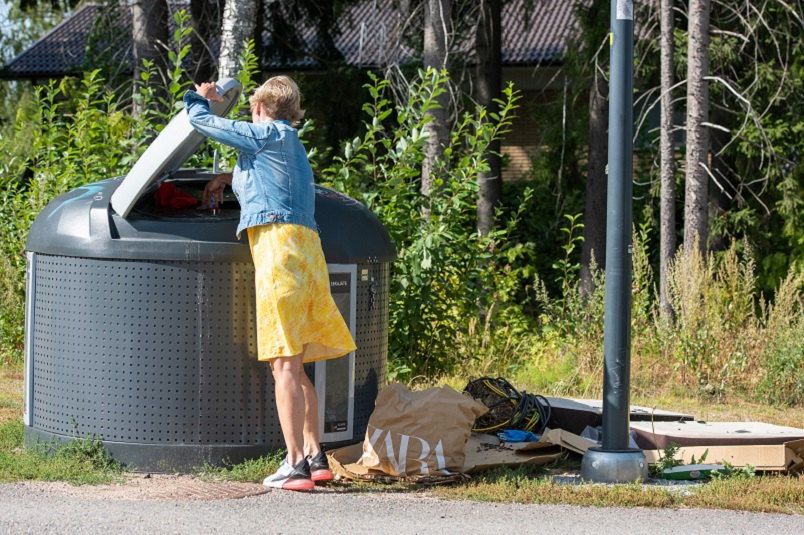27 Nov 2025

Kaisu Paulanto
Finnish
Plogging—jogging while picking up litter—comes from Sweden. Erik Alhström is considered the father of plogging.

1. Introduce yourself.
I am a 55-year-old neuropsychologist from Finland. I have been an endurance runner since 2008 and a plogger since 2018.
2. Where did the original idea of plogging come from?
Since the early 2000s, single-use consumerism has increased significantly, leading to more littering. Concerned about this, I decided to take action myself. In 2018, I started picking up litter while jogging and established the Plogging Facebook group in March 2018.
Plogging—jogging while picking up litter—comes from Sweden. Erik Alhström is considered the father of plogging.
A social tipping point regarding litter awareness occurred during the COVID period, when outdoor activities became more appealing. Personally, I collected over 15,000 face masks during that time.
3. Do you see a connection between waste management and mental health, and how could we raise more awareness about this issue?
Modern consumer society exploits human tendencies toward addiction. People are increasingly hooked on social media, shopping, ultra-processed foods (UPFs), nicotine, and traditional substances. We live in an "addiction society" that fuels environmental pollution, climate change, human distress, and wealth inequality. For the well-being of both people and the planet, it is crucial to understand who benefits from these dependencies and how they are reinforced. Marketing promotes single-use consumption and individualism, discouraging responsibility. Litter reflects human behavior and societal trends—most commonly packaging from ultra-processed foods, alcohol and nicotine products (cigarettes, vapes, pouches, snus).
Many people litter because disposable consumption has become normalized, especially among younger generations who are targeted by marketing that promotes convenience and individualism. Psychologically, ignoring the waste generated by disposable consumption allows the cycle to continue.


Nature-based activities offer effective stress management. Spending time in nature combines mental, social, and physical benefits. Concrete actions like outdoor activities feel grounding, whereas purely abstract advocacy (e.g., online activism) can be exhausting. Better connection to nature leads to empathy towards nature, animals and environment.
4. How can we all contribute to a healthier environment?
While litter picking may seem small compared to global environmental issues, it creates visible change and fosters social responsibility. Leading by example and sharing results online can influence others and contribute to a broader cultural shift toward sustainability. Sharing photos of collected litter on social media raises awareness and pressures companies to act. Personal choices matter too—such as avoiding fast-food outlets and reducing overall consumption. For me, plogging has dramatically changed my habits: I no longer feel the urge to shop excessively, have stopped flying and eating meat, and never owned a car.
Humans are social beings who learn through modeling. Seeing others adopt positive habits encourages similar behavior—"keeping up with the Joneses" applies to sustainable practices as well.

Litter picking is often perceived as dirty and embarrassing. People fear getting their hands and clothes dirty, and the first piece of trash is psychologically the hardest to pick up. Once these negative feelings are overcome, the activity becomes enjoyable, even meditative.